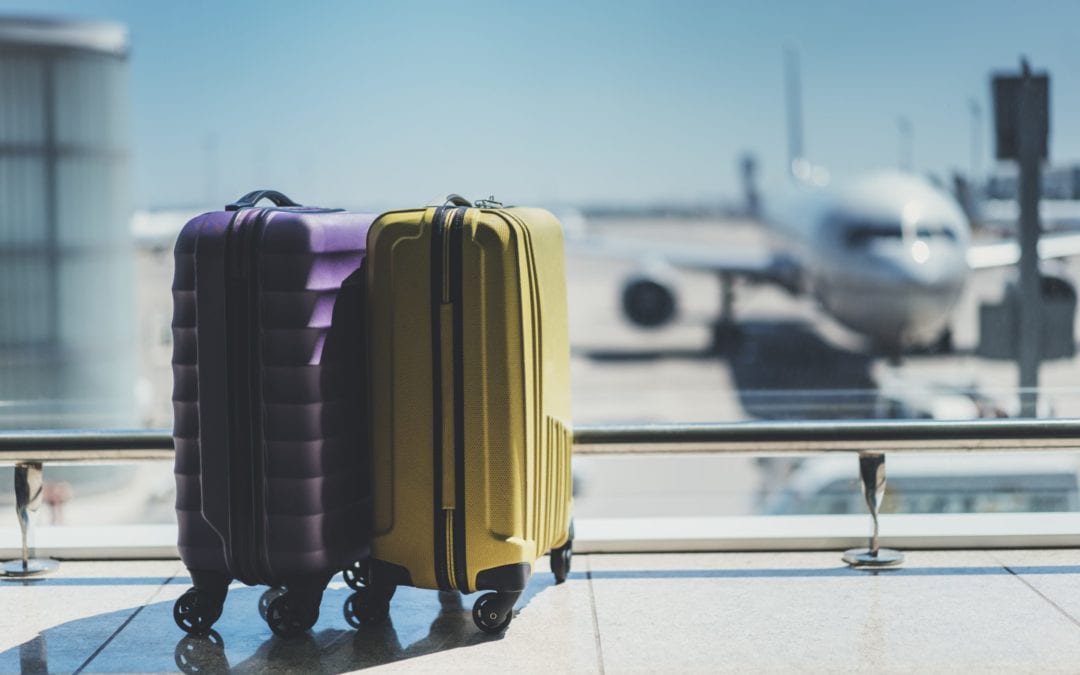Earlier in the year, when ABTA published its annual Travel Trends Report, the outlook for the travel and tourism industry in 2020 was broadly positive. Despite modest economic growth and political uncertainties surrounding Brexit, as well as the sad demise of the iconic British travel company Thomas Cook, all the signs were that British people remained committed to their overseas holidays. More than six in ten Brits took a foreign holiday in the 12 months to July 2019, the highest number since 2011.
Most of those holidays were to Europe but long haul destinations in North America and Asia also proved popular. Competition across the travel industry was intense. Despite this, the package holiday market was proving resilient as the sector celebrated its fifth consecutive year of growth since 2014.
The UK, with its attractive heritage offer and vast range of festivals, sporting events and tourism marketing campaigns was also proving to be a popular destination for overseas visitors. In 2019, 40.9 million visitors came to the UK, spending £28.4 billion. VisitBritain initially forecast inbound visits to the UK to grow by 2.9% and visitor spending to grow by 6.6% in 2020. That would have been a new record.
The vast and complex travel and tourism industry is one of the most important sectors in the UK, both in terms of employment numbers and revenues. It encompasses passenger airline and rail operators, leisure attraction providers, restaurants, hotels and other accommodation providers. These, in turn, buy goods and services from a vast network of suppliers.
The Coronavirus (Covid-19) pandemic has changed everything
From mid-March, Covid-19 triggered a near-total shutdown in international tourism to and from the UK. Forecasting at this time is difficult, given the constantly-changing situation and the unique circumstances. Events are moving so fast the outlook can change daily.
It is an unprecedented crisis across the entire tourism eco-system and many individuals, companies and governments are still reeling from the immense shock. Revised OECD estimates on the Covid-19 impact point to a 60% decline in international tourism in 2020. This could rise to 80% if recovery is delayed until December.
VisitBritain’s latest scenario is that inbound tourism to the UK will also decline by around 60%. That assumes there is no second wave of the virus that would be severe enough to necessitate going back into lockdown. Domestic tourism, however, is expected to recover more quickly as people switch to holidays closer to home. Indeed, we are already seeing a boom in UK ‘staycations’ that will hopefully help to support jobs and businesses. Some tourism businesses and employees are also currently benefiting from government support and stimulus packages.
However, there is yet more uncertainty around how long, and in what form, this support will continue. The UK travel and tourism market is highly fragmented, comprising a large number of small-scale players, such as independent restaurants, hotels and cafes, which often employ only a handful of staff. These sit alongside multinational brands such as IHG, Hilton and British Airways. Almost 70% of tourism and hospitality businesses employ fewer than 10 people.
Restaurants comprise the largest segment of the travel and tourism industry in the UK, accounting for 52.9% of the industry’s total value. The hotels and motels segment accounts for a further 13.3% of wider industry revenues. Airlines (10.8%), passenger rail operators (9.7%), and casino and gaming companies (9.4%) also count among the most important sub-sectors.

Travel Industry Trends
Managing uncertainty
No one knows when (or if) we will have an effective Covid-19 vaccine or when and where we might experience new waves or spikes of the virus. Different national and local governments will impose different regulations and quarantine arrangements. Corporate travel clients will have varying travel policies and individual holidaymakers will have different risk profiles and expectations.
As such, the travel sector will continue to experience a period of extreme uncertainty for the foreseeable future. Navigating the challenges of Covid-19 will mean major changes. All companies will need to be flexible and develop the ability to scale up or scale down their operations at short notice, in response to constantly changing travel restrictions.
Managing customer expectations
Customers will expect travel and tourism companies to provide up-to-date information on any travel restrictions, to answer their questions and make all the necessary arrangements. They will also need reassurance about the hygiene and safety measures used by hotels, airlines and other transport providers. Keeping on top of this will be a major challenge for the sector as a whole.
The move to digital
Technology already plays a major role in the travel industry. The Coronavirus pandemic will accelerate this trend. Just as customers have got used to buying their groceries and doing their banking online, many will also expect a personalised, digital travel journey.
Some customers will be happy to visit their travel agent on the high street. Others will prefer to research and book their trips online, or video conference with their travel agent at a time and place of their convenience. Travel and tourism companies have an opportunity to develop a competitive advantage by offering a fully digital customer journey.
The environment
Customers are increasingly concerned about the environmental impact of their travel arrangements. For corporate customers in some parts of the world, this is being driven by outside pressures in the form of new carbon taxes, requirements to report on their environmental policies or public relations concerns. Increasing numbers of holidaymakers are also seeking out authentic experiences that have a positive impact on local communities and the environment.
SWOT ANALYSIS
Strengths
- The UK travel and tourism sector is well established and one of the largest in the world. It is also able to leverage the country’s significant history and heritage.
- The wide diffusion of English as a second language has helped to make the UK a leading global visitor destination.
- The UK has invested heavily in its tourism industry over recent years, and has been an important financer of campaigns such as VisitBritain.
- The majority of tourism operators are small companies with fewer than 10 employees, making the barriers to entry lower than in many other industries.
Weaknesses
- The UK has been one of the worst affected countries in Europe during the initial phase of the Covid-19 pandemic and this is likely to impact customer sentiment.
- The UK is famous for large scale events, such as music festivals, and indoor venues, such as theatres, and these are likely to be among the last to restart or reopen.
- Tourism is a seasonal industry, influenced by the weather and the calendar, and revenues often fluctuate accordingly.
- Travel and tourism companies are also sensitive to currency market fluctuations, as higher prices deter in-bound tourism and vice versa.
- Traditional travel operators have been particularly vulnerable to the emergence of disruptive online operators such as Airbnb, Expedia and Skyscanner over recent years.
- The UK travel and tourism sector is extremely fragmented, with a vast number of smaller providers making for a highly competitive market place.
Opportunities
- The UK has a sophisticated and thriving digital technology sector. The travel and tourism industry could leverage this expertise to enhance customer experience and develop multi-channel, personalised services.
- Staycations are likely to become increasingly popular.
- The UK has an extensive coastline and varied landscape where Covid-19 secure, socially distanced experiences could be developed to attract more visitors.
Threats
- The pandemic has triggered a global economic crisis and many economies are falling into recession. This will have consequences for any tourism recovery.
- The outcome of the UK’s Brexit negotiations could make Britain less accessible to EU visitors. It could also increase costs for British travellers to the EU, particularly with the loss of the EHIC and pet passports.
- Low-cost tourism markets, such as Eastern Europe and Asia, present increasing competition to the UK.
Employment and considerations
The travel and tourism industry offers numerous employment opportunities both in the UK and abroad. While a degree is not always required, gaining a relevant qualification in hospitality, leisure and tourism is advantageous and will help demonstrate commitment to recruiters. It may also help an employee achieve greater responsibility.
Qualifications range from foundation degrees and national diplomas to undergraduate and Master’s degrees. It is also possible to gain chartered status through the relevant professional bodies. Some larger companies also offer in-house training, including fast-track schemes for graduates and potential managers.
Smaller sized employers tend to allow workers opportunities to take on early responsibility, and this can escalate quickly, offering prospects for rapid career progression. Employers typically like candidates to have an array of “soft” skills, including strong communication, commercial awareness and the ability to work well as part of a team.
An enthusiastic approach is also essential, as well as a willingness to travel or even re-locate for work. Languages skills are also in high demand, with Mandarin and Cantonese particularly sought after by employers. Strong digital skills will increasingly be an advantage.

